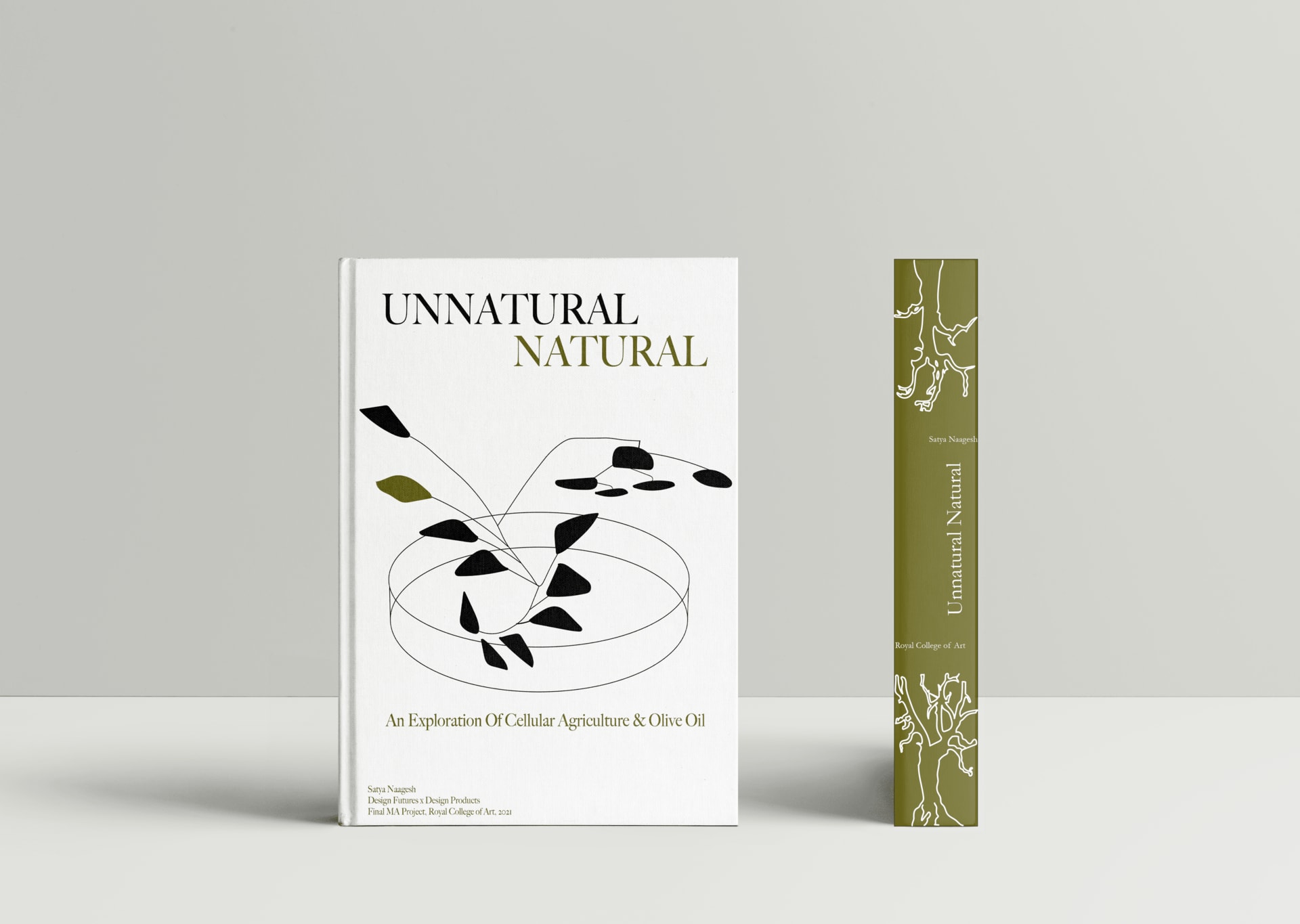In today's society, we are already living amidst many kinds of non-human entities as well as increasingly autonomous things and systems. Yet, within this technological utopia, it's becoming increasingly clear that the computers and smart machines we have created in order to master the world are in fact remastering us: our politics, the way we relate to each other and the natural environment around us.[1]
Unnatural Natural
My final project explores the idea of the natural vs. the artificial. I've examined a thought provoking ‘more-than-human’ future while delving into concepts such as cellular agriculture, virtual reality and the blurry intersection of the natural world and technology. Developed in response to my personal experience of a small scale olive harvest in Tuscany in October 2020, I began to understand the historical, cultural and social importance of olive trees and olive oil to communities while learning more about the Xylella Fastidiosa plant bacterium, which has decimated millions of olive trees across southern Italy. There are also many other pressing issues surrounding the harvest including the labour intensive processes and the damaging environmental effects of oil mill production. With olive oil being worth over €2 billion to Italy's and the European Union's economy, what will olive harvest look like in the future?
Shifting Food Cultures of the Future
Cellular Agriculture is an emergent field that focuses on the production of animal-sourced foods from cell culture rather than directly from animals. In December 2020, Singapore granted the world's first regulatory approval to sell lab-grown chicken nuggets to customers. While the field today focuses only on animal products, I believe this technology will continue to permeate our society in the coming years and shift to other food products whose manufacturing processes also face challenges.Therefore, in 2050, could olive oil be cultivated in a lab?
Two key interviews frame the core validation for my speculative future scenario. First, I interviewed the research director of New Harvest, one of the world's largest cellular agriculture institutes, who mentioned that they work with companies who are beginning to cultivate palm oil compounds in a lab. Secondly, I spoke with a conservation scientist at Kew Gardens, who was exploring and contrasting tissue culture technology with more natural conservation methods in the context of extinction.
Ultimately, the key research questions that came out of this project which I hope will spark discourse include:
What is the scale of loss and gain when cellular agriculture, in 50 years time, moves to other food produce like olive oil?
As we look to a future of shifting food culture, what are the implications of technology that alters human and natures’ collaborative practices?
What are the implications of giving a few, specific companies control over what we eat?
[1] Anab Jain, 'More-Than-Human-Centred Design'




![[untitled]](https://res.cloudinary.com/rca2020/image/upload/f_auto,h_834,w_1280,c_fill,g_auto,q_auto/v1/rca2021/60cb2b8298de755bbffe8e14-994612?_a=AXAH4S10)
![[untitled]](https://res.cloudinary.com/rca2020/image/upload/f_auto,h_834,w_1280,c_fill,g_auto,q_auto/v1/rca2021/60cb2b8298de755bbffe8e14-286718?_a=AXAH4S10)
